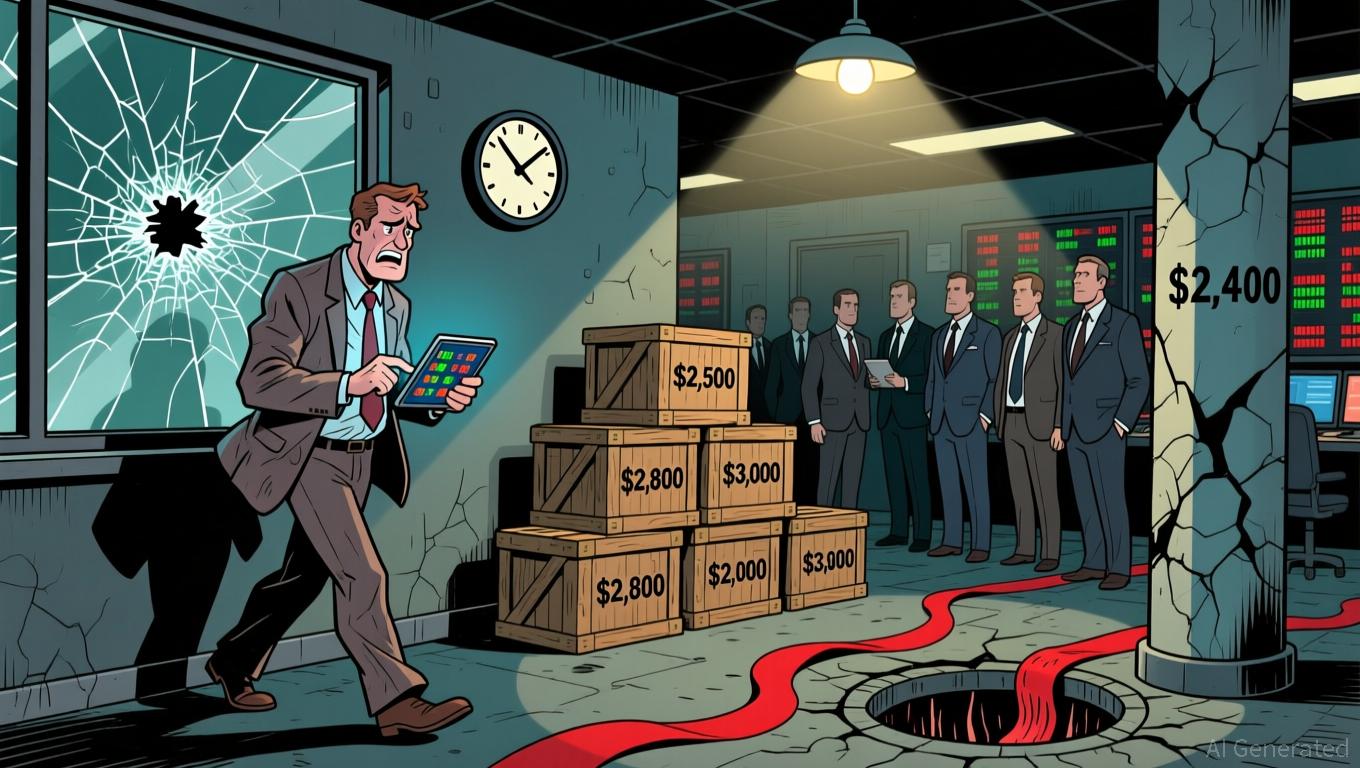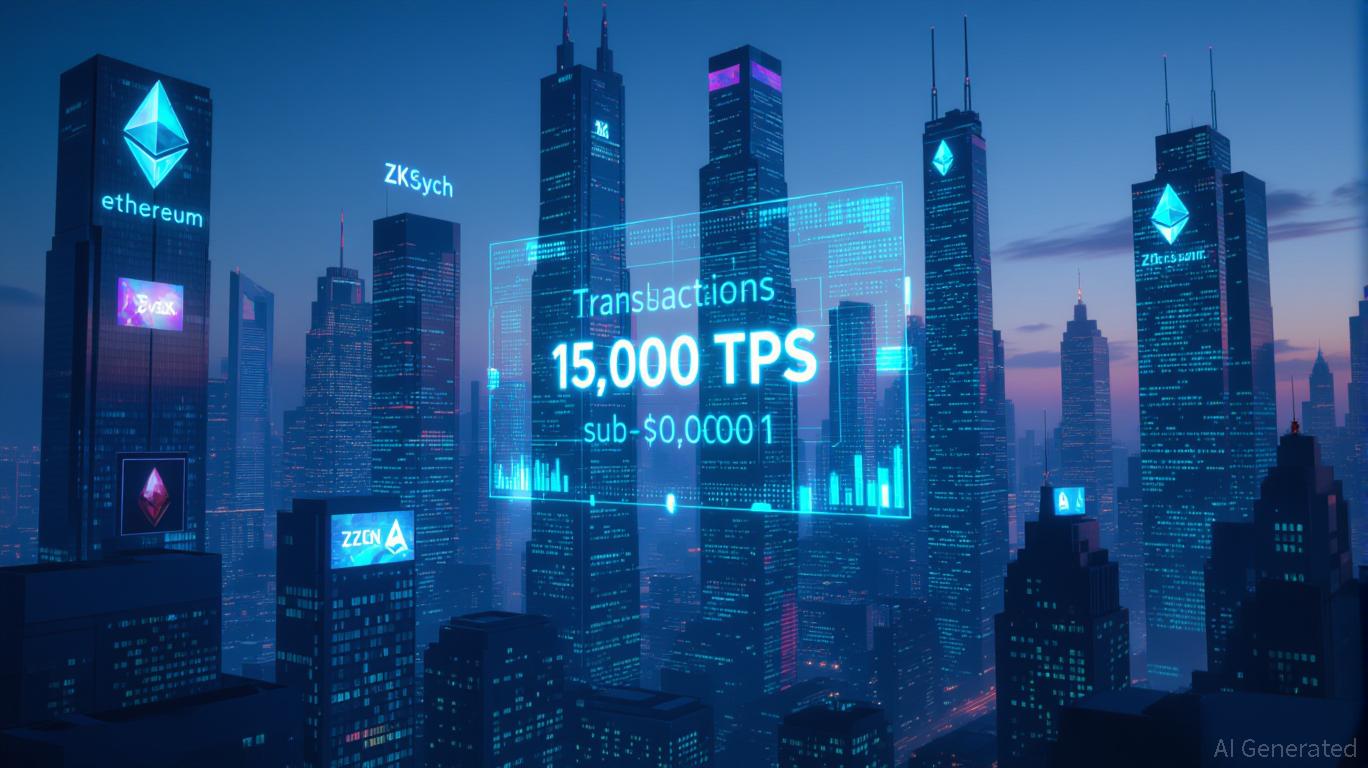dYdX’s performance-driven affiliate system establishes a new benchmark for DeFi rewards
- dYdX's v9.4 upgrade introduces a performance-based 50% commission tier, replacing static VIP tiers with dynamic affiliate fees tied to real-time trading volume. - The sliding fee model automatically adjusts commissions (30% base, 50% for top performers) to align affiliate rewards with platform liquidity and growth goals. - Competitors like Bitget and YWO also adopt performance-driven affiliate strategies, reflecting a broader DeFi trend toward merit-based incentives. - dYdX's protocol-level hard-coding o
dYdX has overhauled its affiliate program as part of the v9.4 software update, introducing a performance-driven commission structure that offers up to 50% rewards. This marks a notable change in how decentralized finance (DeFi) platforms incentivize participants. The update brings in a "Sliding Affiliate Fee Feature," replacing the previous fixed VIP tiers with a flexible system where affiliate commissions are directly linked to the actual trading volume they generate in real time. This adjustment
Under the revised system, all affiliates start with a 30% base commission—double the earlier 15%. Affiliates who refer over $10 million in trading volume within a 30-day window become eligible for a 50% commission rate for the following month. This variable structure ensures that higher contributions are rewarded proportionally, promoting a merit-based environment and aligning affiliate compensation with the platform’s liquidity and expansion objectives. The new approach also
This update demonstrates dYdX’s ongoing effort to enhance its tokenomics for greater effectiveness and competitiveness. By embedding performance criteria directly into the protocol, dYdX promotes economic fairness and minimizes operational hurdles, strengthening its position in the perpetuals sector. Experts highlight that such advancements are essential for maintaining liquidity in the increasingly competitive DeFi space, where strong incentive mechanisms are key to attracting and retaining users.
Other platforms are also advancing their affiliate initiatives. Bitget, for example, rolled out a Black Friday event featuring matched bonuses and a 50,000 USDT prize pool to boost spot-grid trading, while YWO launched a transparent introducing broker program with adaptable revenue sharing and rapid commission payouts. These developments reflect a broader industry shift toward performance-based models, as crypto companies aim to balance user acquisition with sustainable income
For
Disclaimer: The content of this article solely reflects the author's opinion and does not represent the platform in any capacity. This article is not intended to serve as a reference for making investment decisions.
You may also like
Ethereum Updates: Ethereum Drops to $2,800, Prompting Surge in Demand for ZKP's Hardware-Based Presale
- Ethereum's price fell below $2,800, triggering $6.5M liquidations and testing critical support levels amid declining on-chain demand metrics. - Institutional players like BitMine accumulated 3.62M ETH (~$10.4B) despite the selloff, signaling long-term bullish conviction. - ZKP's hardware-driven presale gained traction with $17M in ready-to-ship Proof Pods and Miami Dolphins partnership for privacy-focused sports analytics. - Mutuum Finance's $19M DeFi presale and ZKP's auction model with $50K wallet caps

Vitalik Buterin Supports ZKsync: What This Means for Layer 2 Scaling
- Vitalik Buterin endorsed ZKsync in late 2025, highlighting its "underrated and valuable" work alongside the Atlas upgrade achieving 15,000 TPS and $0.0001 fees. - ZKsync's zero-knowledge rollups and EVM compatibility enabled institutional adoption by Deutsche Bank , Sony , and Goldman Sachs for cross-chain and enterprise use cases. - The Fusaka upgrade aims to double throughput to 30,000 TPS by December 2025, positioning ZKsync to compete with Polygon zkEVM and StarkNet in Ethereum's Layer 2 landscape. -

The ZK Atlas Enhancement: Revolutionizing Blockchain Scalability?
- ZKsync's 2025 Atlas Upgrade achieves 15,000–43,000 TPS with sub-1-second finality, addressing Ethereum L2 scalability bottlenecks via Airbender proofs and modular OS. - DeFi protocols like Aave and Lido leverage ZKsync's $0.0001/tx costs to unify liquidity, while Deutsche Bank and Sony adopt its trustless cross-chain infrastructure for compliance and transparency. - ZK token surged 150% post-upgrade, with TVL hitting $3.3B and analysts projecting 60.7% CAGR for ZK Layer-2 solutions by 2031 amid instituti

XRP News Update: XRP ETFs Spark Optimism—Is $1,115 Within Reach?
- XRP's price surge to $2.20 is driven by ETF launches, with $422M inflows from Franklin Templeton and Grayscale. - Technical indicators suggest a potential $2.50+ rally if support at $1.84 holds, with long-term forecasts reaching $26.50 by 2030. - Institutional adoption of Ripple's ODL and Ripple USD's $1B+ market cap highlight growing utility beyond remittances. - Regulatory clarity post-SEC ruling and macroeconomic factors remain critical for XRP's $1,115 potential in ultra-bullish scenarios.
